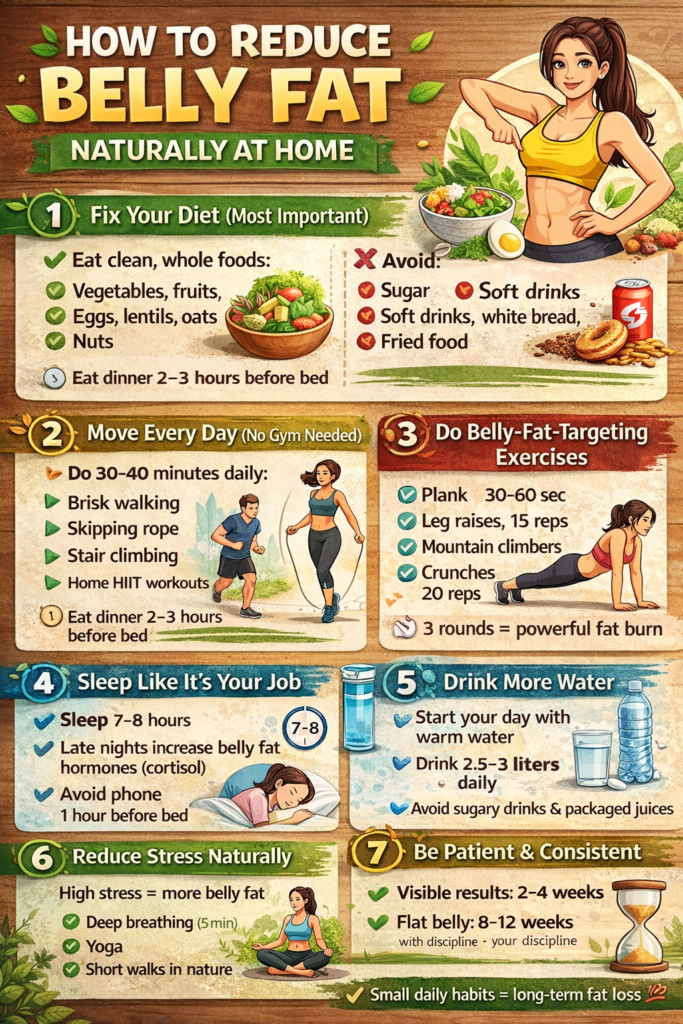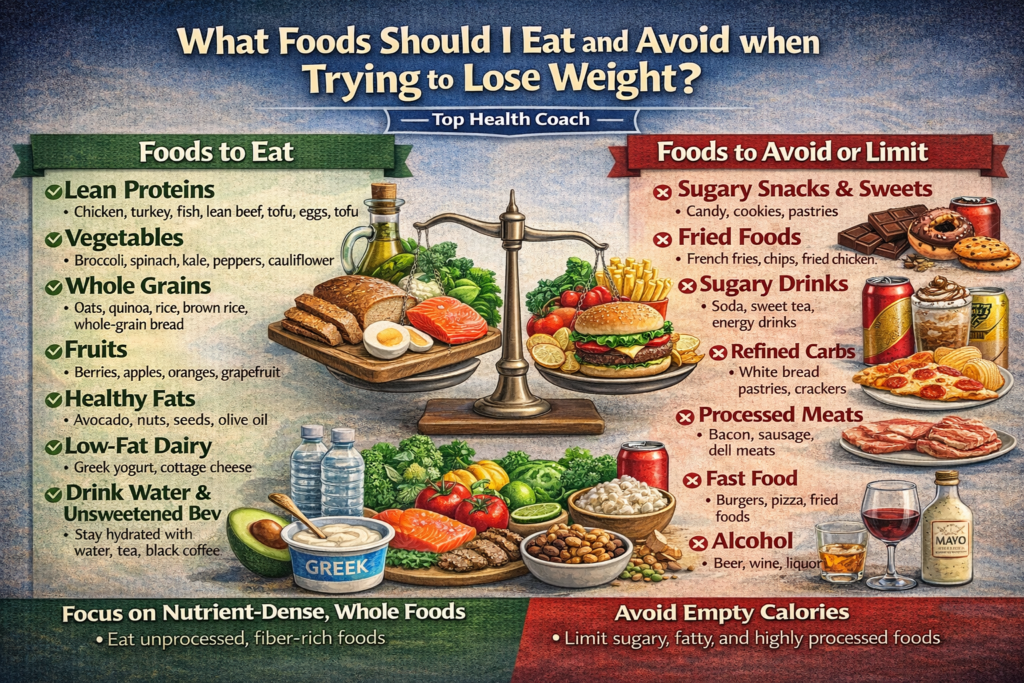Losing weight is not just about eating less or exercising more. It’s about creating a sustainable lifestyle that blends healthy eating, consistent movement, and a positive mindset. People often start their fitness journey full of energy, but many struggle to stick with it. The truth is, achieving your weight loss goals requires more than motivation—it needs strategy, planning, and discipline.
In this comprehensive guide, we will uncover the secrets to weight loss that can help you not only shed extra pounds but also maintain a healthier lifestyle in the long term. From setting realistic goals to understanding your body’s metabolism, you’ll learn proven strategies that successful individuals use to reach and sustain their fitness targets.
Why Do Most People Fail to Reach Their Weight Loss Goals?
Before diving into the secrets of weight loss, it’s important to understand why so many people fail:
- Unrealistic expectations – Many people expect drastic results in a short time.
- Fad diets – Extreme diets may show quick results but are hard to maintain.
- Lack of consistency – Skipping workouts or switching diets too often leads to frustration.
- Emotional eating – Stress, boredom, or sadness often trigger overeating.
- Ignoring lifestyle changes – Focusing only on short-term fixes instead of creating long-term habits.
By addressing these mistakes, you’re already one step closer to unlocking the secrets to achieving your weight loss goals.
Secret 1: Set Realistic and Specific Goals
One of the biggest mistakes in weight loss journeys is setting vague or impossible goals like “I want to lose 20 pounds in a month.” Instead, focus on realistic weight loss goals. A safe and healthy pace is 1–2 pounds per week.
How to set effective goals:
- Break large goals into smaller milestones.
- Use the SMART method: Specific, Measurable, Achievable, Relevant, and Time-bound.
- Track progress weekly instead of daily to avoid discouragement.
Example: Instead of saying “I want to lose weight,” say “I will lose 5 pounds in the next 5 weeks by exercising 4 times per week and reducing sugar intake.”
Secret 2: Focus on Nutrition, Not Just Calories
Calories matter, but quality of food is just as important as quantity. Many people assume that cutting calories drastically will speed up results, but it often leads to nutrient deficiencies, cravings, and fatigue.
Nutrition strategies for weight loss:
- Eat more protein: Helps preserve muscle mass and keeps you full longer.
- Load up on fiber: Vegetables, fruits, legumes, and whole grains improve digestion and reduce hunger.
- Limit processed foods: Sugary drinks, fried items, and refined carbs slow progress.
- Stay hydrated: Sometimes thirst is mistaken for hunger.
Balanced nutrition ensures that your body is fueled properly while you work towards your weight loss goals.
Secret 3: Understand the Role of Metabolism
Your metabolism is the process by which your body converts food into energy. People with a faster metabolism burn calories more efficiently. While genetics play a role, lifestyle choices can also boost it.
Ways to boost metabolism:
- Strength training to increase muscle mass.
- Eating enough protein to trigger the thermic effect of food.
- Staying active throughout the day (walking, stretching).
- Getting quality sleep.
A sluggish metabolism is often a hidden barrier to achieving weight loss success.
Secret 4: Exercise Consistently, but Smartly
Exercise is crucial, but overtraining or relying on just cardio can backfire. The best approach is to combine cardio, strength training, and flexibility exercises.
- Cardio workouts (running, cycling, swimming) burn calories and improve heart health.
- Strength training builds lean muscle, which helps burn more calories even at rest.
- Yoga or stretching reduces stress and enhances mobility.
Consistency matters more than intensity. Aim for 150 minutes of moderate activity per week along with 2–3 days of strength training.
Secret 5: Build Healthy Habits Instead of Following Fads
Quick-fix solutions like detox teas, extreme fasting, or “miracle pills” rarely work long-term. Instead, focus on healthy habits that stick.
Examples of sustainable habits:
- Cooking at home more often.
- Eating smaller portions on a consistent basis.
- Walking after meals.
- Going to bed at the same time every night.
Habits, not willpower, determine your long-term weight loss success.
Secret 6: Manage Stress and Emotional Eating
Stress triggers the release of cortisol, a hormone that increases appetite and cravings, especially for sugary or fatty foods. Many people sabotage their weight loss goals due to emotional eating.
Tips to control emotional eating:
- Practice mindfulness—eat slowly and enjoy each bite.
- Keep a food journal to identify emotional triggers.
- Use healthier stress relievers like meditation, deep breathing, or light exercise.
By managing stress, you’re less likely to rely on food as comfort.
Secret 7: Prioritize Sleep
Many underestimate the connection between sleep and weight loss. Poor sleep disrupts hormones like ghrelin (hunger hormone) and leptin (satiety hormone), leading to overeating.
- Aim for 7–9 hours of sleep per night.
- Avoid screens and caffeine before bed.
- Maintain a regular sleep schedule.
Quality sleep repairs the body, balances hormones, and supports fat loss.
Secret 8: Stay Accountable
Accountability is a powerful motivator. When you share your goals with others, you’re more likely to stay committed.
Ways to stay accountable:
- Join a fitness community or support group.
- Track your meals and workouts using apps.
- Work with a trainer or nutritionist.
- Involve a friend or partner in your journey.
Accountability ensures that you stay focused on your weight loss goals even when motivation fades.
Secret 9: Be Patient and Persistent
Weight loss is not a sprint—it’s a marathon. Many people give up too soon when results are slow. Remember, the scale is not the only measure of progress.
Other signs of success:
- Increased energy levels.
- Improved mood and sleep quality.
- Better fitting clothes.
- Enhanced fitness and stamina.
Consistency and patience are the true secrets to weight loss success.
Secret 10: Celebrate Small Wins
Acknowledging small victories keeps you motivated. Instead of waiting until you reach your final goal, celebrate progress along the way.
Examples:
- Reward yourself with a new outfit.
- Treat yourself to a spa day.
- Enjoy a cheat meal without guilt (in moderation).
Celebrating small achievements helps maintain momentum and reinforces positive behavior.
Putting It All Together
The secrets to achieving your weight loss goals are not hidden in a magic diet pill or extreme workout plan. They lie in a combination of realistic goal-setting, balanced nutrition, regular exercise, stress management, quality sleep, accountability, patience, and consistent habits.
When you focus on long-term lifestyle changes instead of short-term fixes, you not only achieve your weight loss goals but also maintain them for life.
10 Frequently Asked Questions (FAQ)
1. What is the most important secret to achieving weight loss goals?
The most important secret is consistency. Whether it’s diet, exercise, or sleep, sticking to a routine will bring long-lasting results.
2. How many calories should I eat to lose weight?
It depends on age, gender, activity level, and metabolism. On average, creating a calorie deficit of 500–750 calories per day leads to safe weight loss of 1–2 pounds per week.
3. Is exercise more important than diet for weight loss?
Both matter, but diet has a bigger impact. Exercise enhances calorie burn and preserves muscle, but nutrition plays a larger role in creating a deficit.
4. Can I lose weight without exercising?
Yes, weight loss is possible with diet alone, but combining it with exercise ensures better health, improved fitness, and long-term sustainability.
5. Why do I stop losing weight after a few weeks?
This is called a weight loss plateau. It happens because your body adapts to the lower calorie intake. To break it, increase activity, adjust calories, or change workouts.
6. How much water should I drink daily for weight loss?
Aim for 2–3 liters per day. Staying hydrated supports metabolism, reduces hunger, and improves digestion.
7. Are cheat meals okay when trying to lose weight?
Yes, occasional cheat meals can boost motivation and prevent feelings of restriction. Just avoid turning them into cheat days.
8. Does sleep really affect weight loss?
Absolutely. Poor sleep increases hunger hormones and reduces metabolism, making it harder to stick to your weight loss goals.
9. Which foods should I avoid for weight loss?
Limit processed foods, sugary drinks, fried foods, refined carbs, and high-calorie snacks that provide little nutritional value.
10. How do I stay motivated during my weight loss journey?
Stay motivated by setting small goals, tracking progress, joining support groups, celebrating small wins, and reminding yourself of the long-term benefits.



